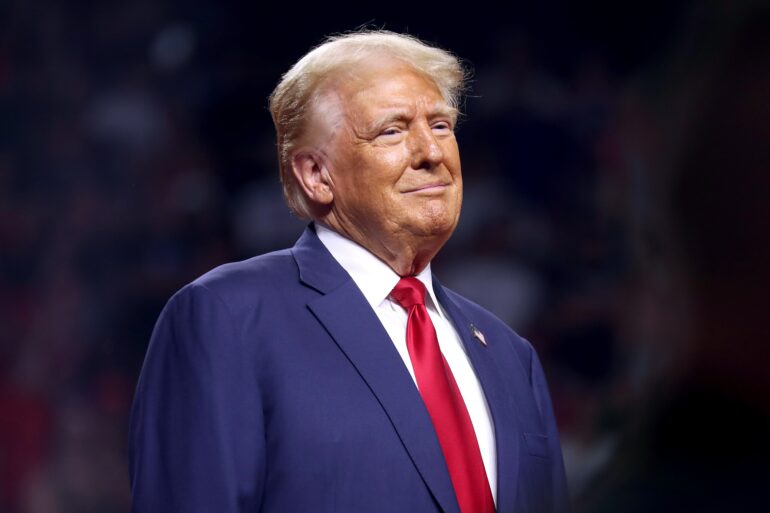President Trump announced Friday that Intel has agreed to give the U.S. government a 10 percent stake in the struggling American chipmaker, a move aimed at strengthening domestic semiconductor production and ensuring taxpayer investments yield tangible returns.
“They’ve agreed to do it, and I think it’s a great deal for them,” Trump told reporters during a briefing. The administration has been weighing taking a stake in Intel using previously allocated funding, Commerce Secretary Howard Lutnick confirmed earlier this week.
Trump offered insight into how the agreement came about, noting his initial call earlier this month for Intel CEO Lip-Bu Tan to resign.
The president cited concerns raised by Sen. Tom Cotton (R-Ark.) regarding Tan’s investments in Chinese companies and his previous leadership of Cadence Design Systems, which pleaded guilty to violating export controls by selling chip design technology to a Chinese military university.
“I said, ‘Well that’s right he should resign,’” Trump recalled. “And he came in, he saw me, we talked for a while. I liked him a lot. I thought he was very good. I thought he was somewhat a victim, but, you know, nobody’s a total victim, I guess.”
Trump continued, “And I said, ‘You know what? I think the United States should be given 10% of Intel.’ And he said, ‘I would consider that.’ Intel has been left behind, as you know, compared to [Nvidia CEO] Jensen [Huang] and some of our friends.”
Commerce Secretary Lutnick underscored the strategic rationale behind the investment, emphasizing the national security implications of relying on overseas chip production. “We cannot rely on Taiwan, which is 9,500 miles away from us and only 80 miles from China,” he said on CNBC’s Squawk Box. “So, you can’t have 99 percent of leading-edge chips made in Taiwan. We want to make them here.”
“One of those pieces is it would be lovely to have Intel be capable of making a U.S. node or a U.S. transistor, driving that in America,” Lutnick added, noting that Trump believes “America should get the benefit of the bargain” from federal funding. Reports indicate that the administration plans to use grants from the CHIPS and Science Act to facilitate the stake.
The proposal has drawn a rare bipartisan acknowledgment. Sen. Bernie Sanders (I-Vt.) praised the approach as a way to ensure taxpayer investments generate returns. “No. Taxpayers should not be providing billions of dollars in corporate welfare to large, profitable corporations like Intel without getting anything in return,” he said. “If microchip companies make a profit from the generous grants they receive from the federal government, the taxpayers of America have a right to a reasonable return on that investment.”
The plan has faced opposition from some corners of Congress. Sen. Rand Paul (R-Ky.) criticized the idea as a “terrible idea” and a “step toward socialism,” tweeting, “If socialism is government owning the means of production, wouldn’t the government owning part of Intel be a step toward socialism?”
The agreement represents a bold attempt by the Trump administration to leverage public investment for strategic and economic advantage, ensuring that the United States maintains technological leadership while protecting taxpayer interests.
By securing a stake in Intel, the administration aims to encourage domestic chip production and reduce the nation’s dependence on foreign suppliers for critical technology.
[READ MORE: FBI Raids Bolton’s Maryland Home Amid Renewed Classified Information Probe]



